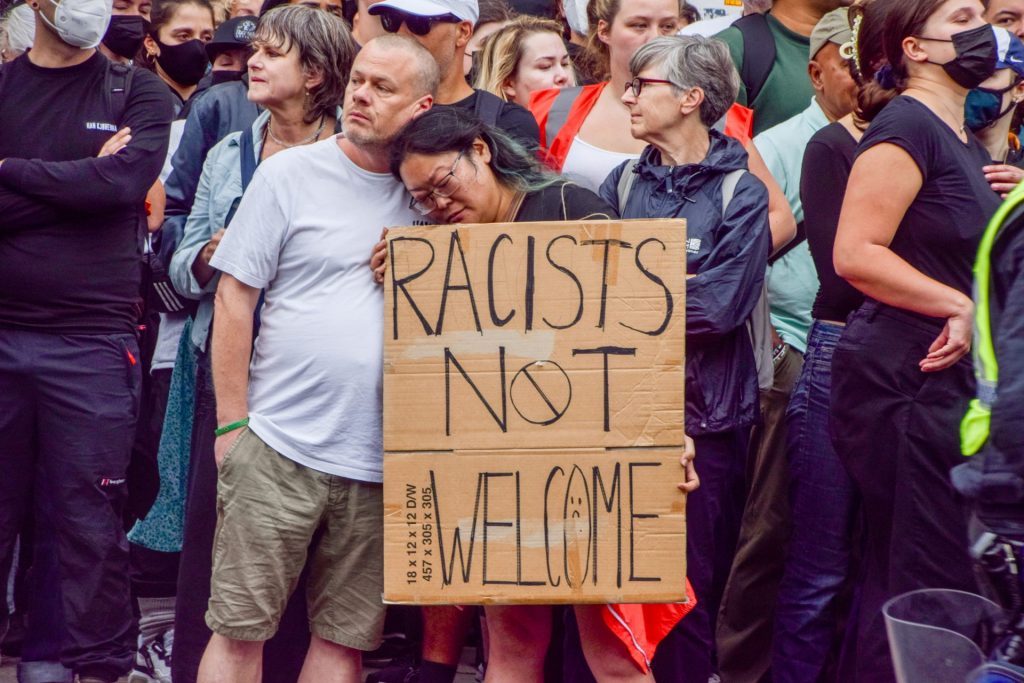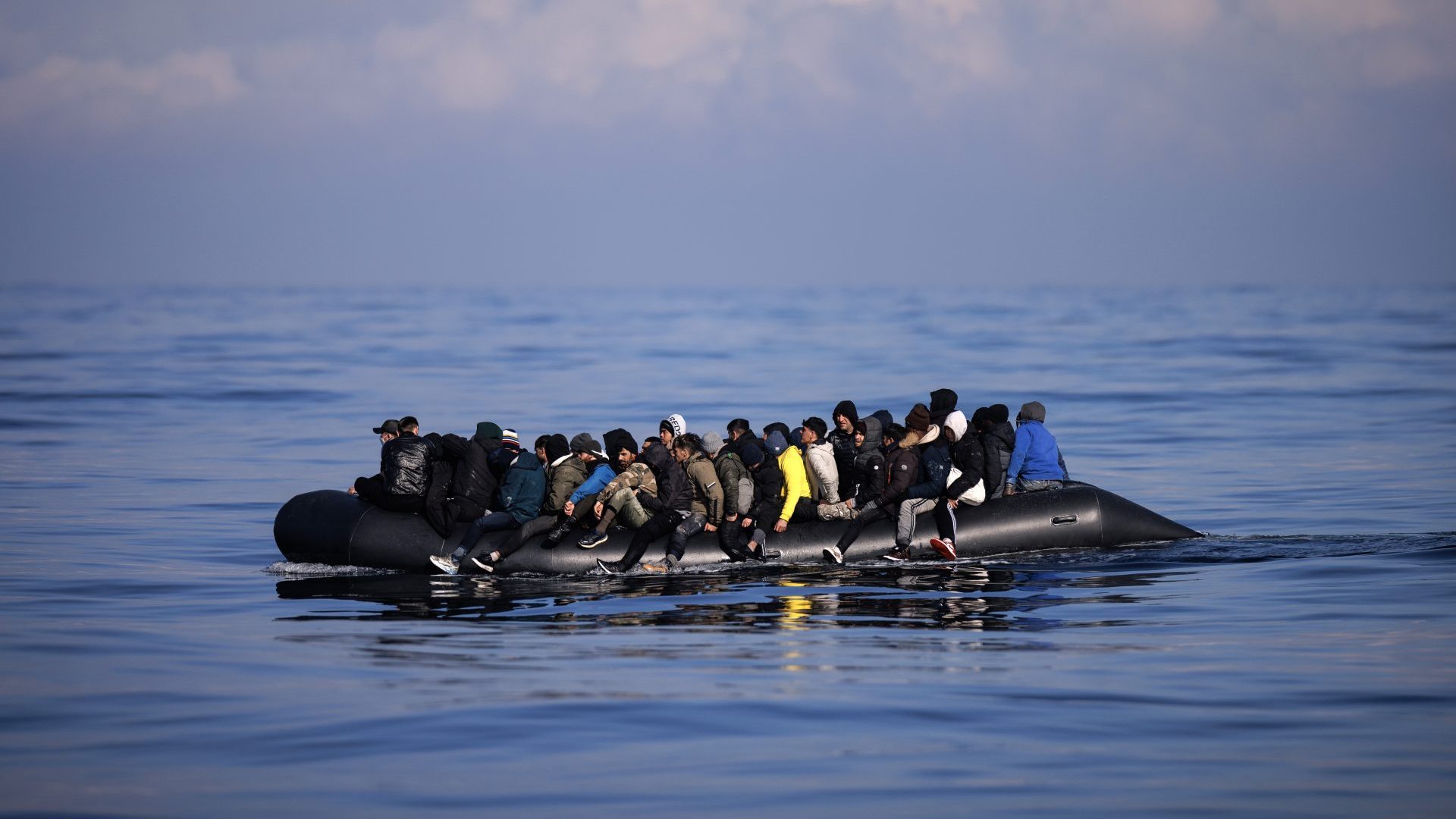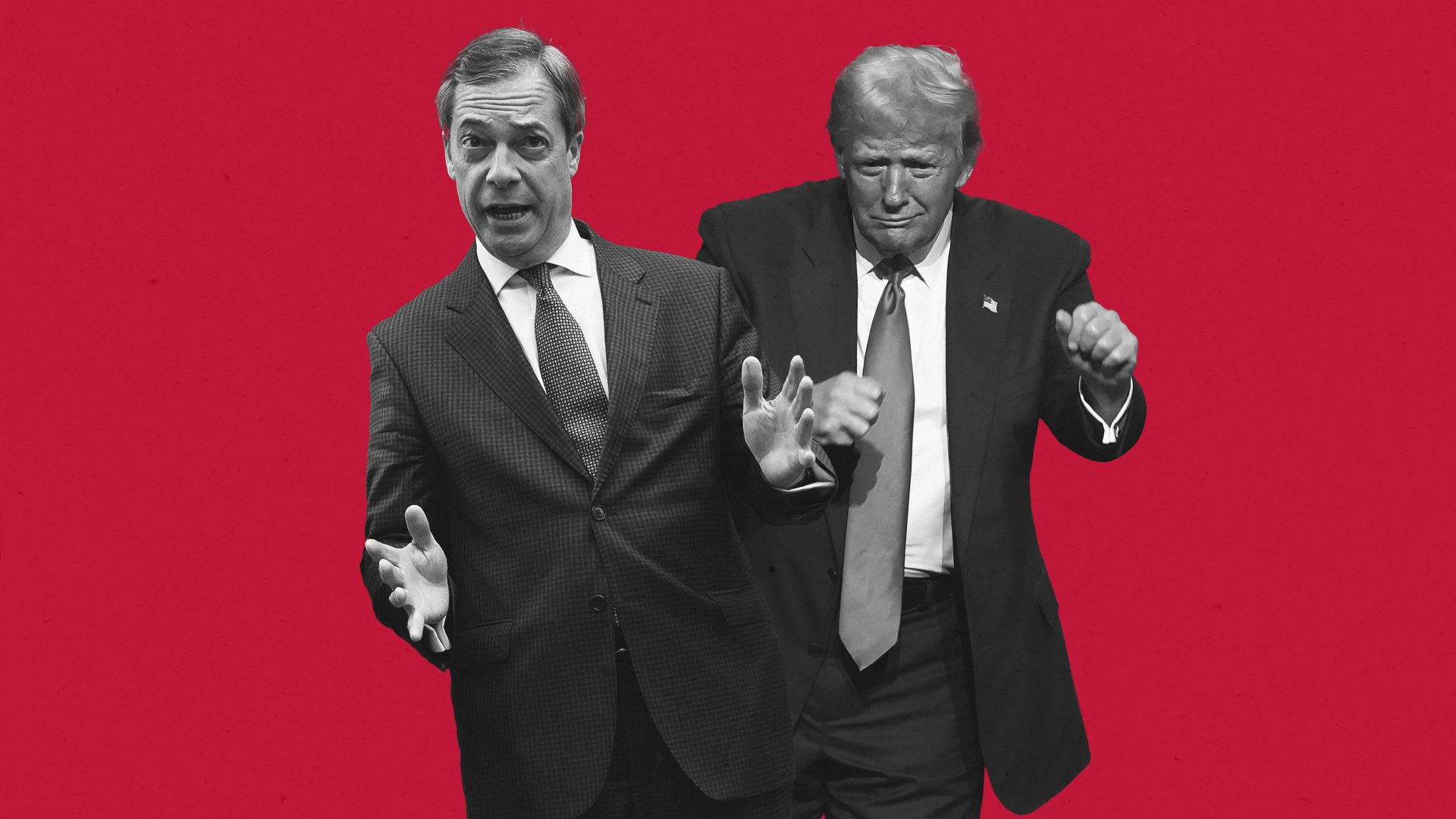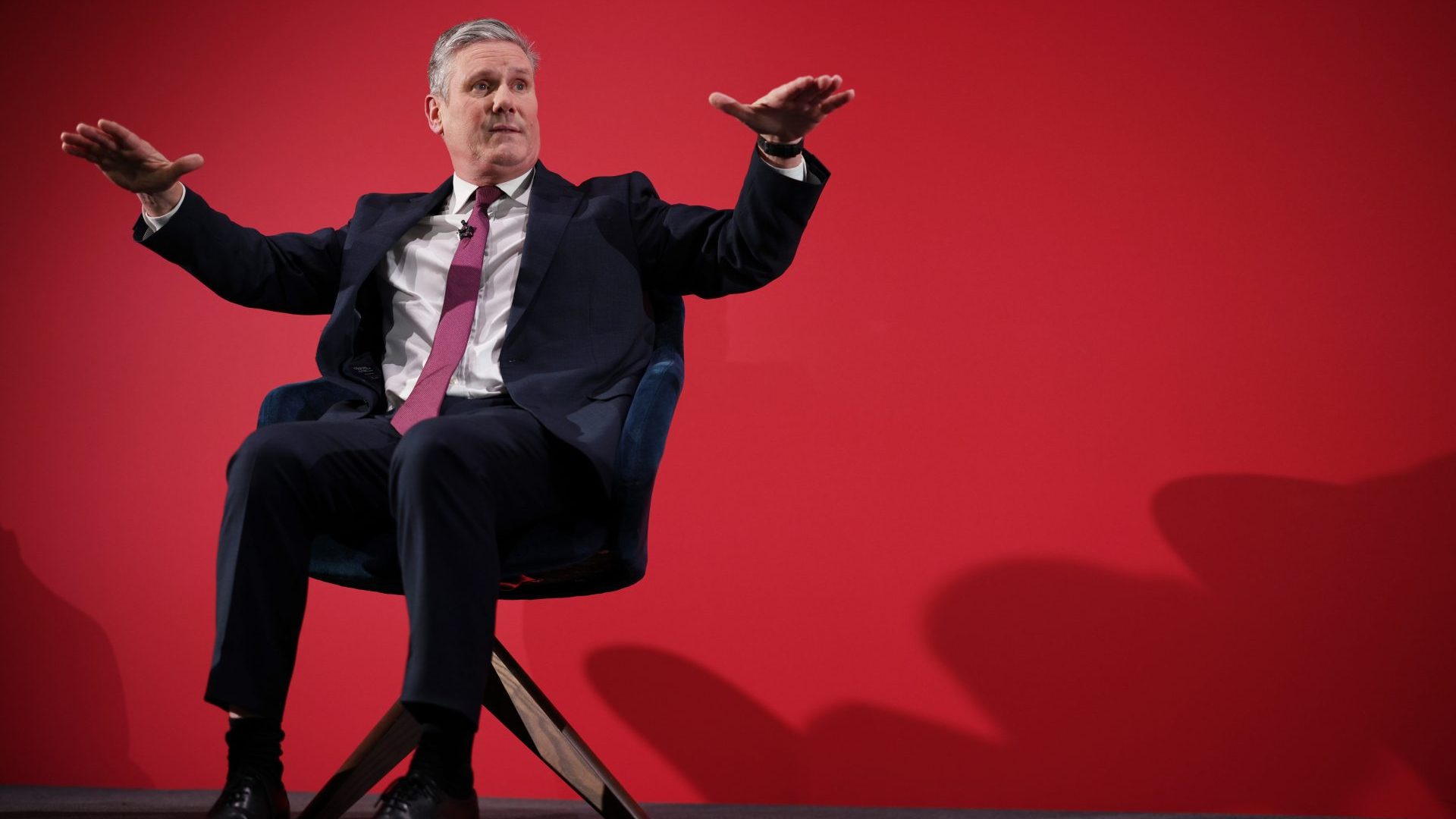In his magisterial essay on populism in last week’s issue of The New European, Peter Hyman set his readers an implicit exam question. “Having secure borders and orderly immigration is a basic requirement of good government,” he wrote.
Well, yes. Except for the tiny minority who believe in open borders, this is common sense. But it also poses a challenge for progressives. How are “secure borders” and “orderly immigration” to be achieved?
Why has the issue become so toxified and the obligation to address it so urgent? Most pressing of all: how can the public’s trust on immigration policy be restored?
Full disclosure: I have always been a strong advocate of immigration, and not only because I am the son of a migrant. I agree with what is often called “the Wall Street Journal position” – that, in an interdependent world, attracting newcomers is essential to a nation’s economic prospects and its labour market.
As a lifelong Londoner, I also enjoy pluralism as a social good in itself and an intrinsic aspect of modern life. As I wrote two weeks ago, the performative and censorious aspects of “wokeness” should not detract from the continued urgency of the ant-racist project it (partly) enshrines. And that stands. Equality of human worth is, or should be, a core British value.
Yet this is exactly why I need to answer Peter’s exam question. All over the world, anxiety about immigration is propelling hard and far right parties to political success and, in many cases, power. In this country, nine years after the Brexit referendum was won by anti-migrant messaging, Nigel Farage’s Reform UK is essentially level-pegging in opinion polls with the main parties.
Across Europe, the nativists surge: in France, Marine Le Pen’s National Rally; in Austria, Herbert Kickl’s Freedom Party; in Germany, Alice Weidel’s AfD; in the Netherlands, Geert Wilders’ Party for Freedom; and in Italy, Giorgia Meloni, a prime minister who was once a fascist.
And, of course, 10 years after Donald Trump’s descent down the golden escalator to announce his presidential candidacy, he is now back in the Oval Office with a mandate for the mass deportation of undocumented migrants.
In such a context, it is politically and morally negligent not to ask what progressives should do in response, beyond retreating into a perma-smug echo chamber. To change the metaphor: it is high time we hugged the cactus of immigration.
First: let us agree what doesn’t work. Keir Starmer has simply swapped Rishi Sunak’s “stop the boats” with “smash the gangs”. Both are slogans masquerading as strategies.
Let us say, for the sake of argument, that the government, in collaboration with continental authorities, does indeed manage to crack down on the criminal people-smugglers. If we have learned one thing from the terrible risks that asylum seekers are ready to take to make it to these shores, it should be that they will find a way of embarking upon that treacherous journey with or without the help of mobsters.
To get to the heart of the matter, second, we need to ask what is really happening. The standard answer is that the number of people coming to this country is simply too high. In November, total net legal migration for the year ending June 2023 was revised upwards by 166,000 to 906,000. In the year ending September 2024, 99,790 people claimed asylum.
Starmer is right to avoid imposing an immigration cap – 15 years have passed since David Cameron pledged a limit of “tens of thousands” – but wrong to promise baldly that Labour will bring the numbers down, as if this were a purely statistical challenge.
The basic requirement of a robust progressive strategy on migration is the honesty that has eluded politicians of all parties in recent years. If it is statistics you want, here are some others: the UK has 130,000 vacancies in the social care sector; we need more than 40,000 nurses and more than 100,000 hospitality employees; there are 33,000 unfilled posts in education. The construction industry will require more than 250,000 extra workers to meet demand over the next five years.
If you want decent public services, infrastructure and growth to pay for a decent society, you need newcomers. Every government promises a “skills revolution” to ensure that these jobs can be filled by people born in this country. There should indeed be such a strategy – there has never been one that lasted long – but it is no substitute for a migration policy that acknowledges the immediate requirements of the labour market; not to mention the problems this and other developed nations face as birth rates decline. This is not woolly liberalism. It is a hard-headed demography.
Third, we need to recognise that all the tough talk has not translated into public trust: quite the opposite. We need less rhetoric and more persuasion by action; less tell, more show. This will involve a considerable expansion of government activity at the border and in the courts, to establish a system that is well-resourced, speedy, compassionate in spirit and much more collaborative with other nations.
In 2006, the Labour home secretary, John Reid, said that the Home Office’s immigration directorate was “not fit for purpose”. Since then, its performance has scarcely improved. There is a strong case for a new Department of Migration, Visas and Refugees, to give the issue a discreet institutional face, a higher public profile and representation at the cabinet table. Imagine (for example) how effective Wes Streeting might be in that role.
This is not a matter of performative politics. Irrespective of political sentiment, we will confront vastly increased population mobility in the years ahead. According to the World Bank, there will be 260 million climate refugees by 2030, and as many as 1.2 billion by 2050. Conflicts around the world will continue to displace millions of people. Successful statecraft in the 21st century requires more than empty-carb slogans and macho posturing.
Progressives need to rediscover the talent of visibly effective policymaking that inspires public confidence: statecraft as soulcraft, to borrow the words of the US commentator George F Will. For those of us who want the UK back in the EU as soon as possible, this also involves greater realism about freedom of movement.
Yes, it would be excellent if, for example, a reciprocal UK-EU youth mobility scheme could be agreed. But it is a mistake, in 2025, to fetishise freedom of movement. Look at what is happening on the continent and ask how sacrosanct that liberty truly is.
Without question, EU migration policy is undergoing so-called “Orbanisation” – following the gravitational pull of the strategies favoured by Viktor Orbán in Hungary and Meloni in Italy. For now, this mostly involves a diminished role for the European Court of Justice in appeals against deportation and a stronger “Fortress Europe” doctrine.
But the direction of travel clearly leads to tighter controls within the EU. It is a safe bet that if and when the UK rejoins the union, the definition of “freedom of movement” will have changed, perhaps radically.

Fourth, and hardest of all, we need to confront the strength of emotion that immigration triggers. Some people, it is true, are implacably racist or xenophobic and will oppose all non-white newcomers, or all migrants of any ethnicity. But I do not believe this group is as large as one might imagine from, say, a few hours doom-scrolling on X.
The problem is otherwise and has much to do with the specific context of hypermodernity. Scroll back to 1968 and Enoch Powell’s notorious “rivers of blood” speech in Birmingham, for which he was sacked from the shadow cabinet by Edward Heath. For more than 30 years, Powell’s incendiary rhetoric and the political folklore surrounding it acted as a form of crash barrier beyond which mainstream politicians rarely strayed.
This unspoken consensus collapsed under a series of related pressures. Globalisation turbo-charged population mobility. The internet generally and social media specifically made it possible to say more or less anything at any time. Next, the financial crash in 2008 shattered trust in the fairness of capitalism, and compounded the broader decline of public confidence in conventional institutions and their capacity to maintain a just social contract.
Against this transformative backdrop, “immigration” became shorthand for tumultuous change and the fears it inspired: economic insecurity, cultural anxiety and a sense that the ground was shifting beneath the very feet of people who simply wanted a fair shake and a normal life.
About this, progressives had little of substance to say. The greatest crime of the 2016 Remain campaign was to ignore the issue of immigration almost entirely, on the pusillanimous grounds that this was the home terrain of Vote Leave and Leave.EU.
Worse, the silence has persisted, leaving the field free for the right to promote their hateful schemes and deploy their poisonous language. In her two stints as home secretary, Suella Braverman helped to normalise on the UK right the characterisation of immigration as an “invasion” and “an existential challenge”.
Look how quickly Robert Jenrick, the shadow justice secretary, declared that, with the fall of Bashar al-Assad, we should immediately start to deport Syrian refugees. Last week, Kemi Badenoch said that the rape gang scandal reflected the values of “sub-communities” from a “peasant background”.
Farage has been openly hostile to the number of Muslim immigrants in this country and, as he told Sky’s Trevor Phillips in May: “What is interesting is that this prime minister is building up far more of that population than anybody before in history”. Here was a politician, now the bookies’ favourite to replace Starmer, essentially echoing the “Great Replacement Theory”: the vile claim that white people are being systematically supplanted by other races, especially newcomers of Islamic heritage.
The progressive response has been pitiful, ranging from soundbite condemnation to outbursts of unpersuasive butchness. Beyond a neuralgic, flailing terror of upsetting the “red wall” – as if such a homogeneous electoral entity existed – there has been little serious analysis of what is now a clear and present roadblock to centrist politicians getting a hearing on anything.
Perhaps the greatest guide to contemporary populism, the UC Berkeley sociologist Arlie Russell Hochschild, argues in her most recent book, Stolen Pride, that this suite of fears has congealed into politically dangerous levels of shame among those who feel left behind.
“Pride,” she writes, “functions as an emotional ‘skin of the self’, so to speak; it signals when our identity is safe, accepted and admired, and when we are in danger of rejection. It is our inner response to our outer appearance.
“Shame also feels like a ‘skin’ – one we wish to shed.” There is a “national pride economy” as well as a material economy. Shame, Hochschild concludes, can “serve as the basis of political appeal”, given “the shamed person’s vulnerability to those offering to blame a world of ‘outside’ enemies”.
This analysis should prompt radical thinking about the structure of the modern economy and the psychic situation into which it plunges many millions of people. Precarious employment; the sense that your children will lead a less fulfilled and prosperous life than you did; the terror that armies of migrants and AI robots are coming to take everything from you. This is the reality with which progressive politicians should be grappling and which Starmer’s grey technocracy is not even remotely equipped to address.
But as a start: here is a third rail on to which we should leap. When politicians talk about “immigration”, they are referring to future newcomers. But it is obvious that when many, perhaps most, people use that word, they are referring to the migrations of the past. They are talking about the social fabric today, not border policy tomorrow. And this leads us to the profoundly sensitive issue of integration.
As the stand-up comic Bill Burr says to his audience whenever he broaches a touchy subject: “Why is it so quiet in here?” Progressives hate talking about integration, fearing that they will inevitably be labelled racist, Islamophobic, MAGA-adjacent or worse. How much easier to pretend that it isn’t an issue at all.
In fact, this cowardice is a relatively new phenomenon. For Isaiah Berlin, the greatest liberal philosopher of the last century, “value pluralism” was the essence of political thinking and action. Conflicts of values, he wrote, are “an intrinsic, irremovable element in human life”. We should embrace the reality that “[t]hese collisions of values are of the essence of what they are and what we are”.
What does this mean? That a pluralist, heterogeneous nation – which is to say, all modern democratic nations – should be in a constant state of healthy, lively negotiation. In practical terms, this requires a recognition that citizenship amounts to more than obeying the law and paying your taxes. It involves a limited core of social norms and shared values. It implies the existence of a public square governed by more than relativism.
As it happens, an admirable route map was delivered by Dame Louise Casey – now a life peer – in her review into opportunity and integration of December 2016. It is one of the most impressive government-commissioned texts I have ever read. Yet it was politely welcomed, and then shelved.
Casey was fearless in her analysis. She paid as much attention to white extremism as she did to Islamist ideology. She looked at the social exclusion of the Roma community as well as the forces conspiring to segregate many Muslims.
Her sharpest criticisms were reserved for the politicians, bureaucrats and self-appointed community leaders who have “allowed diversity and difference to become separatism and segregation that has divided communities”; who have settled for gesture politics that were memorably described to the review as “saris, samosas and steel drums for the already well-intentioned”.
As Casey wrote, the core problem was that a fear of giving offence too often eclipsed a commitment to get things done. Too many “political leaders are focusing on what they think their communities want to hear, rather than what they believe is right, for fear of losing the support of a particular community. That is an approach that lacks the courage and integrity people want from their representatives”.
The 200-page review concludes with an inventory of wise recommendations ranging from the improvement of English language teaching, provision of digital literacy in segregated areas and the boosting of school mixing (through sports and other activities) to an emphasis on British values and history in the curriculum, the use of the universal credit system to put people into contact with language, employment and other services they might need, to a recognition of shared values in the work of the Committee of Standards in Public Life.
Nine years on, Casey’s findings would doubtless need to be updated. But they would be a very strong foundation for those ready to take on her work. What is revealing – and depressing – is that so few good-faith actors have done so. It has become more important to avoid condemnation and cancellation on social media than to confront real-world problems.
At a time when the stakes nationally and globally are so high, this is pathetically craven. We should be implacable in entrenching freedom of worship as a precious liberty in a pluralist society and one to be defended vigorously. But we should be no less insistent that it is morally outrageous for a teacher from Batley Grammar School in West Yorkshire still to be in hiding four years after his lessons upset a group of Muslim parents. The point is the visible preservation of justice, not neurotic virtue-signalling.
This is no time to be dainty, squeamish or lazy. Progressives need to find their footing in a political world governed by emotion; they should plant themselves on this terrain before it is too late for them to be heard at all.
The other side is years ahead of us. They don’t believe in “no-go zones” in politics. As defenders of decency, co-existence and the common good, neither should we.




